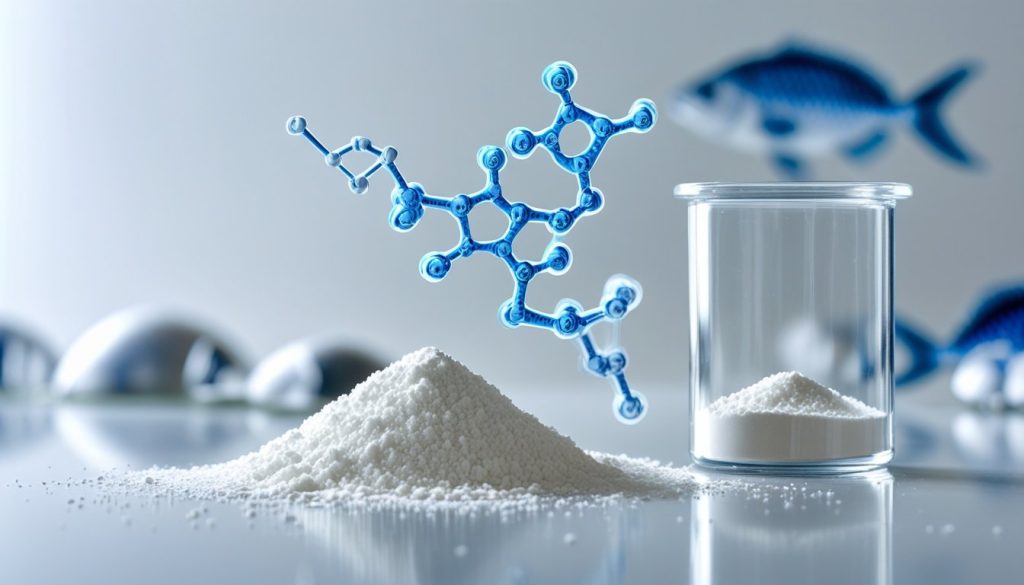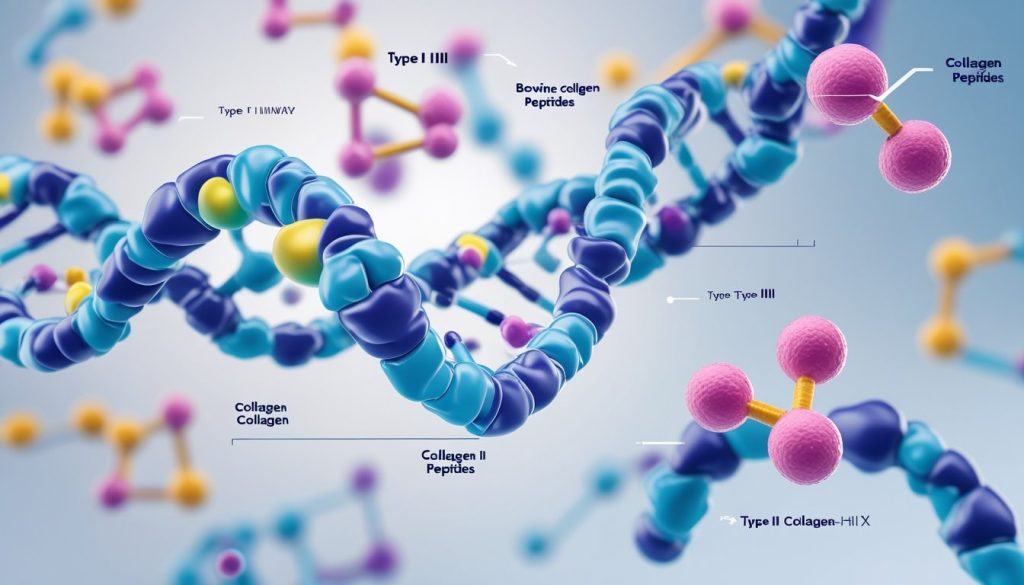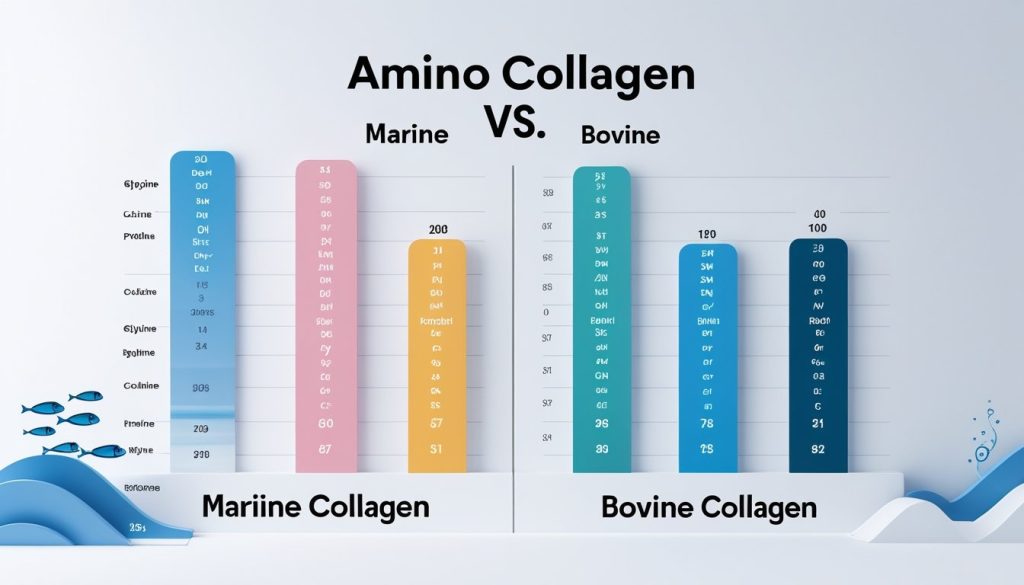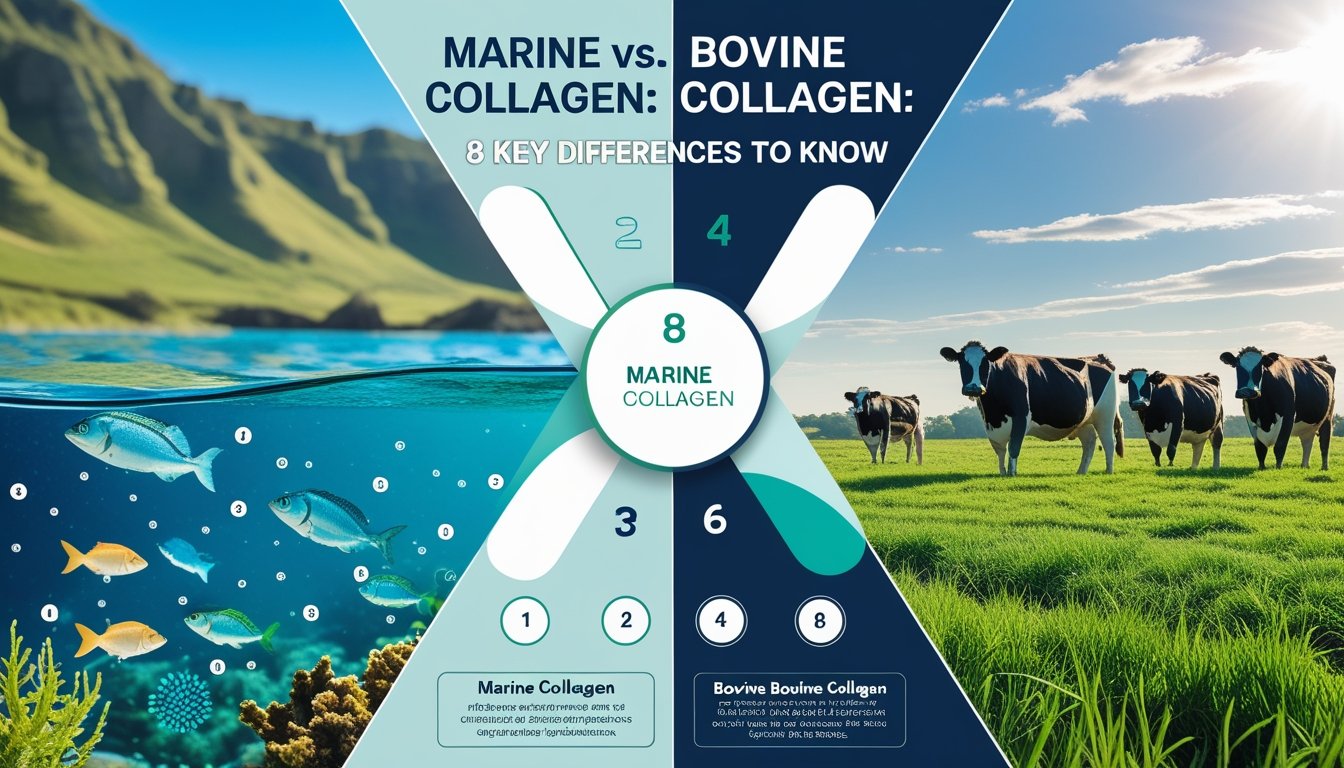Marine vs Bovine Collagen: When it comes to choosing the right collagen supplement, the debate between marine and bovine collagen continues to perplex health-conscious consumers. Both marine collagen and bovine collagen offer unique advantages, but understanding their key differences can help you make an informed decision that aligns with your specific health goals and dietary preferences.
Collagen represents the most abundant protein in the human body, comprising approximately 30% of total proteins and serving as the foundational building block for skin, bones, joints, and connective tissues1. As natural collagen production begins to decline around age 25-30, many people turn to collagen supplements to maintain their skin's elasticity, support joint health, and promote overall wellness.
Understanding Marine Collagen: The Ocean's Beauty Secret
Marine collagen, extracted from fish skin, scales, and bones, primarily contains Type I collagen – the same type that makes up 90% of our skin, hair, and nails2. This fish-derived protein has gained significant popularity in the beauty and wellness industry due to its exceptional bioavailability and skin-enhancing properties.

The extraction process for marine collagen typically utilizes fish byproducts that would otherwise be discarded, making it an environmentally sustainable choice. Marine collagen offers superior bioavailability, enabling the body to benefit more deeply from its effects compared to other collagen sources1.
Key Characteristics of Marine Collagen
Marine collagen stands out for its rapid absorption rate, with studies indicating it absorbs up to 1.5 times better than bovine collagen due to its smaller peptide size and lower molecular weight4. This enhanced bioavailability translates to more efficient circulation in the bloodstream, potentially resulting in faster visible results.
The amino acid profile of marine collagen is particularly rich in glycine, proline, and hydroxyproline—essential building blocks for skin repair and elasticity. These amino acids work synergistically to support collagen synthesis within the body, promoting healthier, more youthful-looking skin.
Exploring Bovine Collagen: The Traditional Powerhouse
Bovine collagen, sourced from cow skin, bones, and cartilage, contains both Type I and Type III collagen, offering a broader spectrum of benefits compared to marine collagen2. Type III collagen plays a crucial role in building cartilage and repairing gut lining, making bovine collagen particularly beneficial for joint health and digestive wellness.

The production of bovine collagen typically involves processing cattle byproducts, making it a cost-effective option that's widely available in the supplement market. Bovine collagen supplies the body with glycine and proline, the amino acids essential for endogenous collagen production.
Nutritional Profile of Bovine Collagen
Bovine collagen boasts approximately 98% protein content, which is slightly higher than that of marine collagen, which has a protein content of around 90%. 11 This higher protein concentration, combined with its rich amino acid profile, including glycine, proline, hydroxyproline, and arginine, makes it particularly valuable for overall connective tissue health. 4
8 Key Differences Between Marine vs. Bovine Collagen
1. Bioavailability and Absorption Rates
The most significant difference between marine vs. bovine collagen lies in their bioavailability. Marine collagen demonstrates superior absorption rates due to its smaller molecular structure and lower molecular weight4. Research indicates that marine collagen peptides absorb up to 1.5 times more efficiently than bovine collagen, resulting in faster circulation in the bloodstream and potentially quicker results.
However, when bovine collagen undergoes hydrolysis to achieve the same molecular weight as marine collagen, the bioavailability gap narrows significantly6. This suggests that processing methods play a crucial role in determining absorption rates.
2. Collagen Types and Composition
Marine collagen primarily contains Type I collagen, which constitutes approximately 90% of the collagen in our skin, hair, and nails. This makes it exceptionally well-suited for applications in beauty and skin health. In contrast, bovine collagen contains both Type I and Type III collagen, with Type III being essential for cartilage building and gut lining repair2.
The presence of multiple collagen types in bovine collagen makes it more versatile for addressing various health concerns, from joint support to digestive health. Marine collagen's focused Type I composition makes it more specialized for skin, hair, and nail benefits.
3. Amino Acid Profiles
Both marine and bovine collagens are rich in essential amino acids, but their profiles differ slightly. Marine collagen excels in its high content of lycine, proline, and oxyproline – amino acids crucial for skin repair and elasticity. Bovine collagen contains the same amino acids as human collagen, plus arginine, which supports overall connective tissue health and cardiovascular function.

4. Environmental Impact and Sustainability
Marine collagen offers a more sustainable alternative to bovine collagen. Aquaculture produces seven times fewer greenhouse gas emissions than cattle farming, and farmed fish demonstrate better protein yield efficiency12. Marine collagen production utilizes fish byproducts that would otherwise be discarded, reducing waste in the seafood industry7.
Bovine collagen production contributes to deforestation and has a substantially larger carbon footprint1. Life cycle assessments indicate that marine collagen sourced from fish skins has one-tenth the carbon footprint of bovine collagen sourced from South America7.
5. Dietary Restrictions and Allergies
Marine collagen suits pescatarians and individuals who avoid red meat for cultural, religious, or personal reasons. However, it's not suitable for vegans or those with fish allergies. Bovine collagen accommodates individuals with shellfish allergies but isn't appropriate for vegetarians, vegans, or those with beef sensitivities2.
6. Cost and Availability
Bovine collagen generally offers a more budget-friendly option due to its mass production capabilities and widespread availability4. As a byproduct of the beef industry, bovine collagen can be produced more economically. Marine collagen typically commands higher prices due to more specialized extraction processes and smaller production volumes4.
7. Taste and Mixability
Bovine collagen typically exhibits a more neutral flavor profile and mixes well in various beverages and foods4. Marine collagen may have a slightly fishy aftertaste, although high-quality products minimize this characteristic. Both types generally dissolve well in liquids, making them versatile for incorporation into daily routines.
8. Specific Health Benefits
Marine collagen excels in promoting skin health, improving elasticity, and reducing fine lines and wrinkles due to its high content of Type I collagen. Clinical trials have demonstrated that marine collagen supplementation can lead to a 100% improvement in fine lines and wrinkles after 12 weeks.
Bovine collagen offers broader health benefits, supporting joint health, muscle development, and gut health due to its high content of Type III collagen. It's particularly beneficial for active individuals and those seeking comprehensive support for connective tissue.
Choosing the Right Collagen for Your Goals
For Skin, Hair, and Nail Health
Marine collagen emerges as the superior choice for beauty-focused goals. Its high Type I collagen content directly targets the structural proteins found in skin, hair, and nails. The enhanced bioavailability ensures faster absorption and potentially quicker visible results2.
Image Placement 4:
Alt Text: Before and after comparison showing skin improvement with marine collagen supplementation
Title: Marine Collagen Skin Benefits Results
Caption: Clinical studies show significant skin improvement with consistent marine collagen use
Description: Visual representation of skin elasticity and hydration improvements achieved through marine collagen supplementation
For Joint and Muscle Support
Bovine collagen proves more effective for joint health and athletic performance due to its Type III collagen content and higher concentration of amino acids that support cartilage repair9. The presence of Type II collagen in some bovine sources further enhances its joint-supporting properties.
For Gut Health and Digestive Support
Bovine collagen Type III specifically targets gut lining repair, making it the preferred choice for individuals with digestive concerns. The broader amino acid profile supports overall digestive health and intestinal integrity.
Quality Considerations and Selection Criteria
When choosing between marine vs. bovine collagen, prioritize products that undergo hydrolysis to ensure optimal bioavailability. Look for supplements with molecular weights below 3,000 daltons for maximum absorption 10. Third-party testing for purity and potency provides an additional layer of quality assurance.
Consider the source of your collagen supplement – wild-caught fish for marine collagen and grass-fed, pasture-raised cattle for bovine collagen typically offer superior quality and fewer contaminants1.
The Future of Collagen Supplementation
As research continues to evolve, the debate between marine and bovine collagen may shift from choosing one over the other to understanding how to optimize each type for specific health goals. Combination products that leverage the benefits of both sources are emerging in the market, offering comprehensive collagen support.
The sustainability factor increasingly influences consumer choices, with marine collagen gaining popularity among environmentally conscious consumers. As extraction and processing technologies improve, we can expect enhanced bioavailability and reduced costs across both categories.
Making Your Decision: Marine vs. Bovine Collagen
The choice between marine vs. bovine collagen ultimately depends on your individual health goals, dietary preferences, and budget considerations. Marine collagen excels in providing skin-focused benefits and offers superior bioavailability, while bovine collagen offers broader health support at a more accessible price point.
Consider starting with marine collagen if your primary goals include improving skin health, promoting hair growth, or enhancing nail strength. Choose bovine collagen if you're seeking comprehensive support for joints, muscles, and digestive health, or if you have fish allergies.
Regardless of your choice, consistency in supplementation proves more important than the specific type of collagen. Both marine and bovine collagen can contribute significantly to your overall health and wellness when incorporated into a balanced lifestyle.
Ready to optimize your collagen supplementation strategy? Discover how amino acids work synergistically with collagen to maximize your health benefits by exploring our comprehensive guide on amino acid supplementation.
Frequently Asked Questions
1. Is marine collagen better than bovine collagen for anti-aging?
Marine collagen typically offers superior anti-aging benefits due to its high content of Type I collagen and enhanced bioavailability, resulting in improved skin elasticity and hydration.
2. Can I take both marine and bovine collagen together?
Yes, combining both types can provide comprehensive benefits, with marine collagen supporting skin health and bovine collagen addressing joint and gut health.
3. How long does it take to see results from marine vs. bovine collagen?
Marine collagen may show results faster due to superior absorption, typically within 4-8 weeks, while bovine collagen results may appear within 8-12 weeks.
4. Which collagen type is better for athletes?
Athletes generally prefer bovine collagen due to its high content of Type III collagen, which supports muscle recovery and joint health.
5. Are there any side effects to marine or bovine collagen?
Both types are generally safe, but marine collagen may cause reactions in those with fish allergies, while bovine collagen may affect those with beef sensitivities.
6. Does the source of marine collagen matter?
Yes, wild-caught fish typically provide higher quality marine collagen with fewer contaminants compared to farm-raised fish sources.
7. Can vegetarians take marine collagen?
Marine collagen is suitable for pescatarians but not strict vegetarians or vegans, as it's derived from fish.
8. Which collagen dissolves better in drinks?
Both types dissolve well when properly hydrolyzed, though bovine collagen typically has a more neutral taste profile.
9. Is marine collagen more expensive than bovine collagen?
Yes, marine collagen typically costs more due to specialized extraction processes and smaller production volumes.
10. Can collagen supplements replace natural collagen production?
Collagen supplements support but don't replace natural production; they provide building blocks that help stimulate the body's collagen synthesis.

